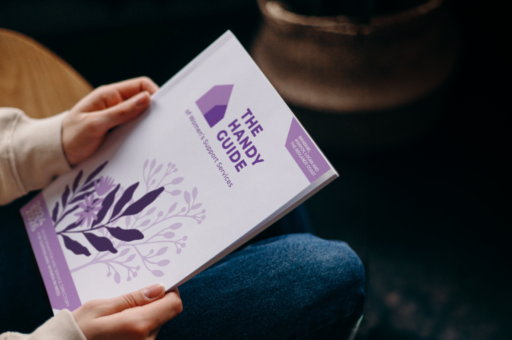
What is coercive control?
Apr 21, 2023
“It wasn’t abuse because he never hit me.”
By the time Hannah Clarke realised her life was in danger, it was too late. The 31-year-old Brisbane mother was murdered alongside her three children by her estranged husband in February 2020.
As details emerged of what Hannah and her children had lived through before their horrific deaths, one term describing the behaviour of her perpetrator attained national prominence. Hannah’s estranged husband wasn’t physically violent towards her, but he had subjected her to one the most dangerous aspects of domestic and family violence – coercive control.
In this article, we'll explore:
- What is coercive control?
- Recognising the signs
- Coercive control laws in Queensland
- How to support victims of coercive control
What is coercive control?
Coercive control is a form of domestic abuse that is prevalent in Australia. It involves a repeated pattern of behaviour aimed at establishing control over another person, often through fear and intimidation. This behaviour can be difficult to identify, but it is essential to recognise in order to understand whether you are at risk in your relationship.
Coercive control is characterised by ongoing and persistent attempts by one partner to undermine the other’s independence, confidence, and sense of safety. Victims of coercive control often feel fearful and anxious, as if they are constantly walking on eggshells.
In fact, this behaviour is sometimes referred to as “domestic terrorism.” Essentially, it involves micromanaging the victim’s daily life in an identifiable pattern, leaving them feeling powerless and trapped.
A survey conducted by the Australian Institute of Criminology in 2020 found that nearly 6 per cent of women experienced coercive control in the previous three months, and 11.6 per cent suffered from at least one form of emotionally abusive, harassing or controlling behaviour.
Recognising the signs
It is important to know that coercive control is a form of domestic abuse, and not all domestic and family abuse is physical. Coercive control does not describe any singular type of incident and can be harder to identify. It can appear in many forms, including:
criticism and name-calling
dictating what you wear or what you eat
limiting your access to money and other resources
monitoring or restricting use of electronic devices
repeated calls and messages
threats and intimidation
restricting activity such as grocery shopping or school pick-ups
isolating you from your family, friends or workplace
stalking
gaslighting and more.
These behaviours can happen gradually and are designed to slowly isolate a person from their friends and family, rendering the victim completely dependent on their partner for financial support, housing, food and connection to others.
Recognising the signs of coercive control is crucial for both victims and those seeking to help them.
Watch: How coercive control manifests in a new relationship
Coercive control laws in Queensland
Until now, coercive control was unrecognised as a criminal offence in Australia, with varying domestic violence laws across different states. While Tasmania had laws specifically targeting coercive and controlling behaviours, victims in other states were left with insufficient legal protection, highlighting the need for nationwide recognition and action against this form of abuse.
Following Hannah’s murder, her parents Sue and Lloyd Clarke have been fighting for coercive control laws in Queensland. The couple, who were named Queensland’s 2022 Australians of the Year for their work in advocating for domestic and family violence, have advocated for coercive control to be made a crime.
In December 2020, the Women’s Safety and Justice Taskforce filed a report to Queensland parliament that included a recommendation for a standalone offence of coercive control to carry a maximum penalty of 14 years in jail.
In May 2022, The Queensland Government reviewed and accepted all 89 recommendations. On 14 October 2022, the Domestic and Family Violence Protection (Combating Coercive Control) and Other Legislation Amendment Bill 2022 (Bill) was introduced by the government.
Then, in February 2023, a major milestone was reached: Parliament took action and passed the Bill, representing the first step towards creating a standalone criminal offence of coercive control in Queensland.
These new laws are an essential tool in combating coercive control and will help protect Queenslanders from this form of domestic violence. It sends a clear message that coercive control is unacceptable and will not be tolerated in Queensland.
Sue and Lloyd Clarke believe Hannah could have been saved if coercive control was criminalised.
How to support victims of coercive control
Supporting victims of coercive control requires a well-rounded approach that involves better education and awareness within our communities. As these issues become more talked about in Australia, the easier it becomes to recognise the signs and provide help to victims, survivors, and their families.
Available resources
If you, or someone you know, is experiencing coercive control, support is available. There are a range of support services, depending on your situation.
If the incident is happening now or there is immediate danger, contact Queensland Police Service on Triple Zero (000). You can also use this online form to request contact with police.
If you or someone you know is a victim of coercive control and requires legal protection, it is recommended to seek legal assistance to ensure that you receive the protection and support you need during this challenging time. Refer to our comprehensive directory for a list of social support services near you.
Whether you require assistance through the civil protection regime or criminal proceedings, it’s important to seek legal assistance as soon as possible. Your lawyers will be able to help you understand your rights, guide you through the legal process, and work towards securing the protection you need to keep yourself safe.
Other support services available include:
DV Connect (1800 811 811) is an organisation that provides crisis support and counselling, as well as a women’s refuge service assisting women and children affected by a domestic violence incident to obtain placement into crisis care.
1800RESPECT (1800 737 732) is a telephone helpline for friends and family to report if someone they know is experiencing domestic violence.
Relationships Australia QLD (1300 364 277) is an organisation that provides relationship support and advice to individuals and families across Queensland.
Mensline (1800 041 612) is a national telephone and online support, information and referral service for men.
Immigrant Women’s Support Service (07 3846 3490) offers support to immigrant and refugee women from non-English speaking backgrounds and their children who have experienced domestic and/or sexual violence.
Women’s Legal Service (1800 957 957) and Legal Aid QLD (1300 65 11 88) provides free legal advice and legal support services to victims of domestic violence, including in relation to applications for a domestic violence order, children’s Court matters and Family Law matters generally.
With these resources at your disposal, you can find the assistance you need and be matched with the appropriate professionals to navigate your choices effectively.
Special thanks to the Family Law and Pro Bono team at HopgoodGanim Lawyers and the Queensland Police Service for their invaluable contributions to this article. Please note that the content of this article is current as of 21 April 2023 and should not be taken as legal advice.




